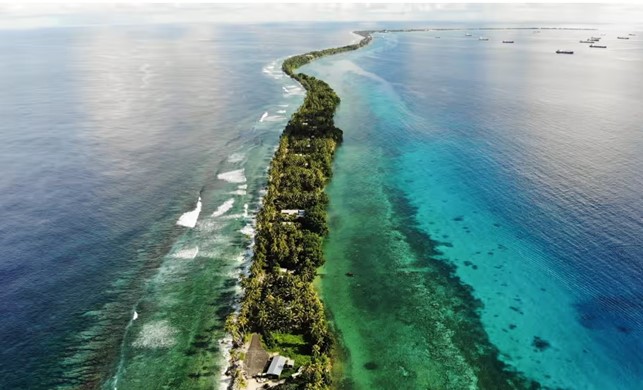
The Pacific Islands Forum, the region's foremost political decision-making body, gathers annually to discuss pressing issues. This year's week-long summit will culminate in a leaders' retreat, where significant decisions, including the potential endorsement of a regional policing initiative championed by Australia, will be made. Another key topic on the agenda is the future of New Caledonia, amid ongoing unrest in the French territory.
Forum Secretary Baron Waqa, a former president of Nauru, highlighted the importance of the meeting, stating, "We gather at a pivotal time in our region's history. We are at the center of global geopolitical interest and at the forefront of the battle against climate change."
Leaders from the forum's 18-member states, including Australia's Prime Minister Anthony Albanese and New Zealand's Prime Minister Christopher Luxon, will attend. As geopolitical tensions rise, with increasing competition for influence in the Pacific, the summit has garnered more attention from global powers.
Climate change and its impacts will be a central theme, with Pacific leaders seeking increased financial support for climate and disaster resilience initiatives. Addressing a press conference in Samoa before the summit, Guterres emphasized the critical need to limit global temperature rise to 1.5 degrees Celsius, noting that the Pacific region contributes only 0.02% of global emissions but is on the frontlines of the climate crisis, facing extreme weather events like tropical cyclones and record ocean heatwaves.
The situation in New Caledonia is also expected to be a major focus. The French territory has experienced deadly violence this year due to Paris' plans to expand voting rights, leading to the postponement of a high-level visit to the area by Pacific leaders. Tongan Prime Minister Siaosi Sovaleni stressed the need for regional consensus on peace and security, including in New Caledonia.
Mark Brown, the Prime Minister of the Cook Islands and the outgoing PIF chair, acknowledged the challenges PIF faces in navigating New Caledonia's dual status as both a full forum member and a French territory. The unrest in New Caledonia has become a "standing item" on the leaders' agenda, underscoring its importance to the region.
The summit also occurs against a backdrop of intensifying geopolitical competition between the US and China in the Pacific. Beijing's growing influence in the region, coupled with increased US engagement, has led to a flurry of diplomatic and economic activities. Fiji's Prime Minister Sitiveni Rabuka recently visited Beijing to discuss deepening ties, while leaders of Vanuatu and the Solomon Islands also visited China in July.
Despite broad agreement on many key priorities, maintaining regional solidarity within the PIF remains a challenge. Last year, a political divide emerged over deep-sea mining, with Vanuatu leading efforts at the International Seabed Authority to prevent the issuance of exploitation licenses until environmental regulations are established. Pacific leaders have called for a regional discussion on this issue, though it has yet to take place.
As Guterres prepares to address the summit, Pacific leaders will be looking for concrete commitments to support their fight against climate change, ensuring their voices are heard on the global stage.